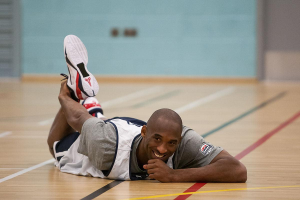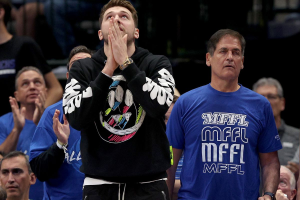NBA Betting Tips: Why the Schedule Matters More Than You Think

Most of the time, people who bet on NBA games look at what kind of a hot streak the squad is on, how much they’ve been winning by, and their offensive rating. There are treacherous stumbling blocks in team schedules though for people who follow the games too casually. There are a lot of factors on a schedule that end up throwing a monkey wrench into statistics and betting, causing outlier performances. Sharps take full advantage of this.
Today, we’re going to break down what specifically schedules have in store that frequently end up spoiling what first appear to be great bets and how you could take advantage of golden opportunities.
Back-to-Back Games
The NBA has a long and grueling 78-game season. These games are prone to players having a down game. On top of this fatigue, the quick turnaround can prevent the team from whipping up a fresh game plan.
What happens as a result is those teams manage:
- fewer points scored
- lower field goal percentages
- giving up more fast-break points
- turning the ball over more often
- sloppier defense
This causes sportsbooks to adjust lines. However, they often don’t adjust enough. This is something to take advantage of in sport betting. Oftentimes, name recognition or team reputation thrusts the public betting fiercely onto the side of that team.
Let’s say the Lakers just played a hard-fought game in Denver. Less than 24 hours later, they’re in Utah playing at elevation again, but the line hasn’t moved much because, well… they’re the Lakers. Public bettors still love them. That’s when you can fade them and grab value on the fresher team.
Time Zones
Let’s talk jet lag. The Utah Jazz could have to travel all the way to the East Coast and play the Miami Heat at 7:00 p.m. That’s 4:00 p.m. body time. Their internal clocks are still adjusting, their legs feel heavy, and their energy tends to lag early in the game. These aren’t excuses—this is basic human biology.
On the flip side, East Coast teams playing late games out west often struggle with second-half energy. The game might be ending at 1:00 a.m. for them, internally speaking. It’s subtle, but over four quarters of basketball, that mental and physical edge—or lack of it—can tip a tight game.

Schedule Breaks
Sometimes, a team gets three days of rest while another team is having a brutal stretch. This is where a solid team can give a superior team a serious tune-up. One of the teams could’ve had to play a high-tempo offense in the previous games, and their defense could be gassed. They could’ve played overtime.
Intensity
Stats and advanced analytics are great, but sportsbooks cannot account for how mentally locked in a team is. After a game where a team felt like they deserved to win and suffered an unlucky break or embarrassment in the previous game, that gives them fuel to take it out on the next team. They want to prove themselves, even after just an ordinary loss. On the flipside, the hubris from a team having vanquished a formidable, league-beating team in a previous game can cause the opposite – the team not being vigilant enough in the next game. Their intensity drops.
Then there are lookaheads. Teams could be zoned in on playing that tough team coming up on the schedule so much that they mentally check out of the game in front of them. Players aren’t focused on the present moment, and maybe coaches save some of the tricks up their sleeves for later. Suppose the Celtics have a Sunday clash with the Bucks, but first, they face the Pistons on Friday. If they sleepwalk through Detroit, you might cash a bet on the underdog or even the spread.
DNPs
In the modern NBA, knowing who’s actually going to suit up is half the battle. You can cap the matchup perfectly, but if a star player gets scratched late for “rest” or “load management,” your bet can go from smart to sunk in seconds. The trick? Understanding how the schedule influences those decisions before they happen.
Gone are the days when superstars played every game unless they were truly injured. Teams now prioritize long-term health over short-term wins—especially with aging stars or fragile lineups. That could mean a surprise “Did Not Play”.
Tanking for the Draft Lottery

Do you even know for certain that the player is actually trying to win? The NBA Draft gives struggling teams the chance to rebuild through top-tier young talent. The worse your record, the better your odds of theoretically securing a high pick through the NBA Draft Lottery.
Even though the NBA flattened the lottery odds in 2019 (so the worst team no longer has a massive edge), finishing in the bottom three still gives teams:
- The best chance at a top-4 pick
- Guaranteed access to an elite young prospect
- A potential future star on a cheap contract
In a league where superstars make all the difference, this is huge. So, once a team knows that it’s out of the playoffs during the season or in the very beginning chooses not to even try to compete, this is a very common phenomenon. Mark Cuban has said before that he told his team to tank for the draft. If a team is clearly not a playoff contender, winning 35 games and missing the playoffs means little. But finishing with 20 wins and landing a generational prospect? That’s franchise-changing.
A lot of teams already know they don’t really have the talent they need for this year. This is called being in “rebuild” mode. This is a year where teams prefer to develop young players, preserve salary cap for flexibility, and clear bloated contracts. So rookies and G-League call-ups get a lot of playing time. To do this, front offices force key veterans to be traded away, healthy players are asked to sit while claiming they need rest when they don’t or are injured when they aren’t, and they limit rotations to weaken the team on purpose.
Recent success stories—like the 76ers’ “Process” era, where they tanked hard and eventually landed Joel Embiid—have made tanking more accepted among fans and executives, despite its ethical controversy.
Taking Advantage
The public chases star power, streaks, and hype. But the sharpest NBA bettors hunt for tired legs, overlooked matchups, trap games, and rest edges—all hidden in the schedule. If you take the time to dig into each team’s travel, rest, and emotional rhythm, you’ll start spotting value before the sportsbooks or the masses do.
In a league where effort, energy, and availability swing results night after night, betting with the schedule in mind isn’t optional—it’s essential.






